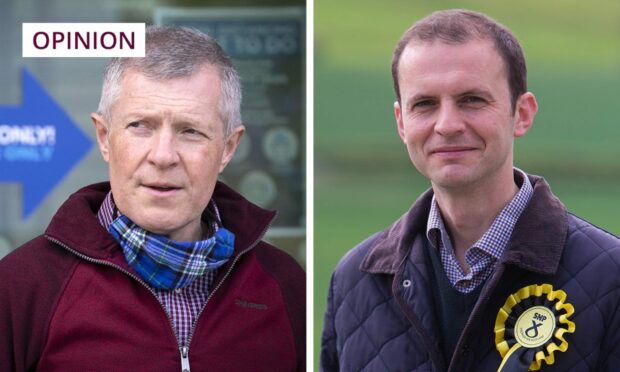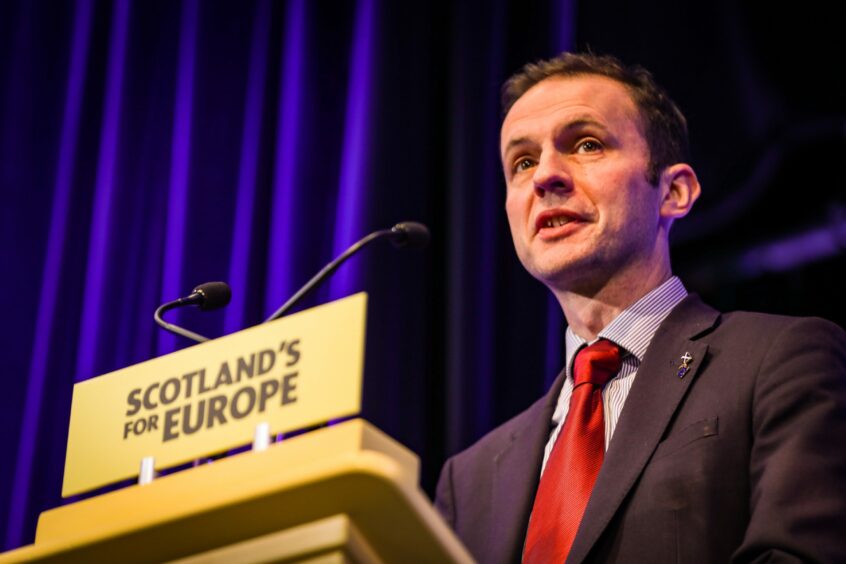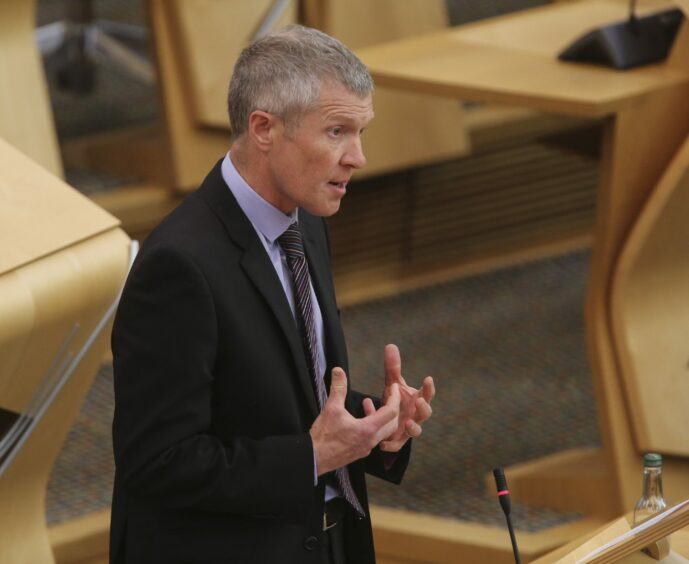Nicola Sturgeon has triggered a legal showdown at the UK’s highest court to secure a second independence referendum on October 19 next year.
The first minister named the date on Tuesday as she outlined a long-awaited roadmap to get past Westminster’s refusal to grant a vote.
She said: “The issue of independence cannot be suppressed.
“It must be resolved through a process that is above reproach and commands confidence.
“My determination is to secure a process that allows the people of Scotland to express their views in a legal, constitutional referendum.”
We asked former SNP MP Stephen Gethins – professor of international relations at St Andrews University – and North East Fife MSP Willie Rennie for their verdict on the IndyRef2 launch.
Stephen Gethins
Parties that win elections are expected to deliver on the commitments made in campaigns and manifestos.
The announcement on Tuesday by the first minister of her intention to hold a referendum in October next year was therefore unsurprising.
During last year’s Scottish parliamentary election Nicola Sturgeon committed to holding an independence referendum in the first half of this parliamentary session and is delivering on that commitment.
The SNP and the Greens both went into that election promising to deliver an independence referendum and, between them, won a majority.
Labour, the Liberal Democrats and Conservatives, who all went into the election saying that a vote for their parties was a vote against a referendum, lost.
In winning the election the SNP won a bigger share of the vote than any UK Government in recent times, winning 48% of the constituency vote and 85% of the constituency seats.
Because of the proportionate nature of Holyrood, they ended up with 64 out of 129 seats and along with the eight seats won by the Greens, a clear majority.
This was well clear of the “landslide” Tory election win in 2019 when Boris Johnson’s party won 43.6% of the vote and 56% of the seats or even Tony Blair’s “seismic” win in 1997 with 45% of the vote and 64% of the seats.
Away from Holyrood the SNP have similarly dominated the past three Westminster elections.
The first minister knows she was elected to deliver independence.
Those who agree with her like that, those who disagree with her don’t.
Nicola Sturgeon is therefore pitting her government’s electoral mandate against that of a Conservative government that has not won an election in Scotland since the 1950s and whose leader is one of the least popular prime ministers, in terms of Scottish public opinion, ever to hold that office.
"Scotland has already paid the price for not being independent."
SNP's @Ianblackford_MP says his party will make a positive case for Scottish independence. #PMQs: https://t.co/gxIafafSxw
📺 Sky 501, Virgin 602, Freeview 233 and YouTube pic.twitter.com/tYWzm3gcq2
— Sky News (@SkyNews) June 29, 2022
Outside the EU, with a growing cost-of-living crisis, an economy that’s underperforming and a prime minister unafraid of breaking international law, the UK is changing rapidly, with consequences for us all.
The first minister is seeking to give Scots a choice over their future.
The reaction of the UK to this bold move will be important to all of our futures as well as telling us something of the nature of the UK and whether it remains a voluntary union of nations.
Willie Rennie
Tuesday’s statement from the first minister was a waste of energy and focus at a time when there are so many more important challenges facing the people of Scotland.
Sturgeon’s speech was typically long on rhetoric and short on specifics but it shouldn’t even have been the most important announcement of the day.
At 9.30 every Tuesday, Scotland publishes statistics showing the state of the nation’s healthcare system and this week, as with most every other week, the figures were brutal.
More than 8,000 people in a week waiting more than four hours in A&E, the second-highest on record.
Over half a million hospital days lost due to delayed discharges.
The worst waits for cancer treatment since records began.
This is where the focus of our parliament should be.
Even beyond the healthcare system there are crises aplenty: war on European shores, the climate emergency and the biggest fall in living standards since the end of rationing.
Yet once again it is independence that sits centre stage.
It’s an obsession of nationalist politicians and a few wannabe Bravehearts that simply does not translate to the average Scot.
There are so many things that our parliament could be doing but for the next year or more, it is likely that all the oxygen in the room will be sucked up by independence.
Those children suffering long Covid, left disappointed after they waited to meet the first minister in the cold outside parliament on Tuesday afternoon, will not thank her for her fixation with breaking up the UK.
Islanders desperate for fresh ferries, the Ukrainians stuck in hotels and the victims of violent and sexual crime left waiting for justice can all think of better uses for our time.
Hard to contain the anger I feel at the criminal waste of energy & focus that this new #independence push represents.
I can think of far better uses of our time. So can Cancer patients, Ferry passengers, victims of crime, long covid sufferers & so many others.
Shame on the SNP pic.twitter.com/IOhLR9zxRv
— Alex Cole-Hamilton MSP🔶🇺🇦 (@agcolehamilton) June 28, 2022
The first minister has consistently put the need to quieten the outer fringes of her party ahead the needs of this country.
That’s why she is racing to the court to test a referendum bill that even she seems to suspect will be shot down in flames and promising the ugly spectacle of casting a future general election as a de facto referendum if she predictably fails to get her own way.
Scottish politics can be so much more than it currently is.
But it is being held back by a nationalist party with a one-track mind.
Nicola Sturgeon may have found a way to soothe her erratic troops for a day but in doing so she has let down the country she is supposed to serve.













Conversation